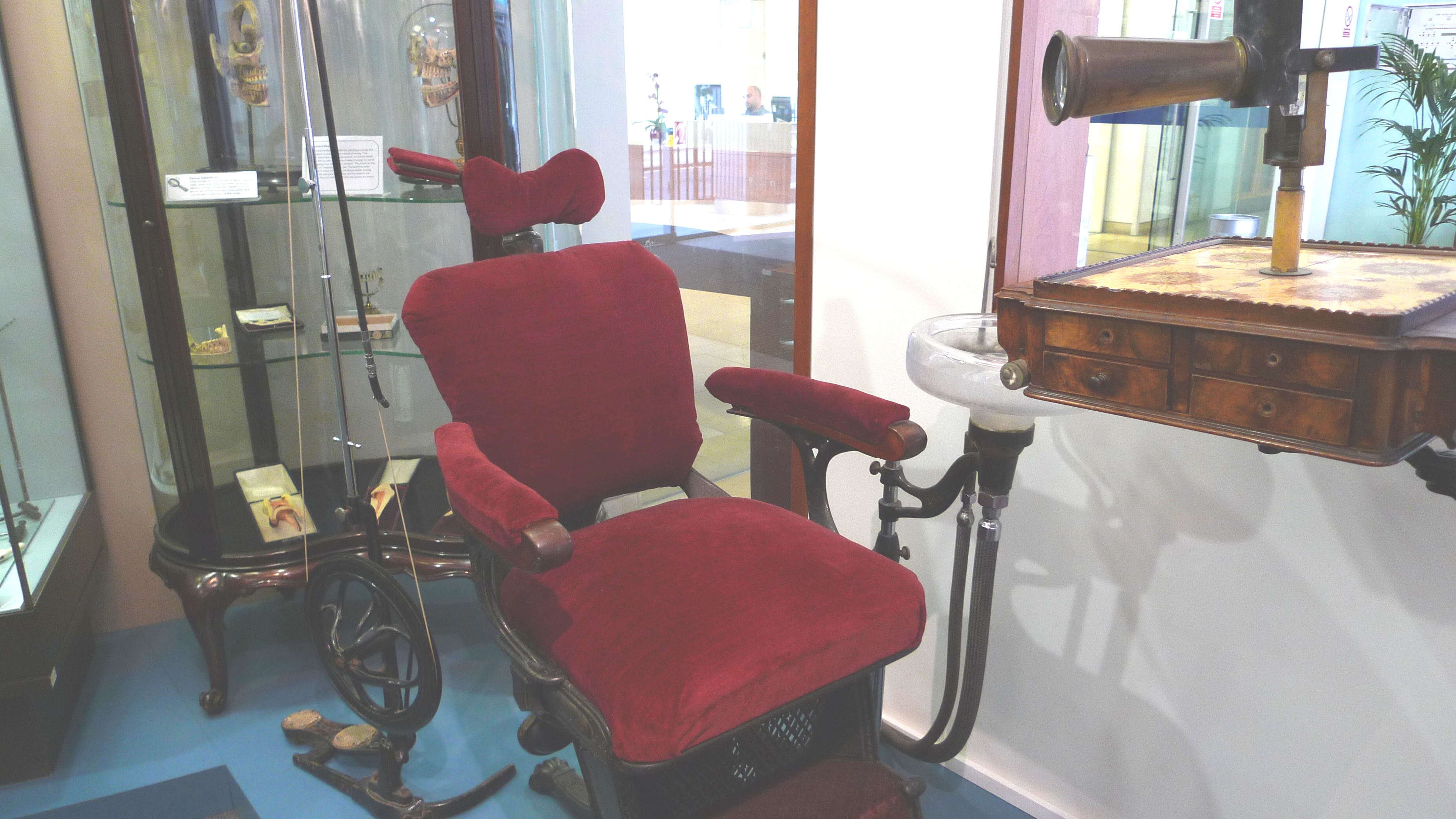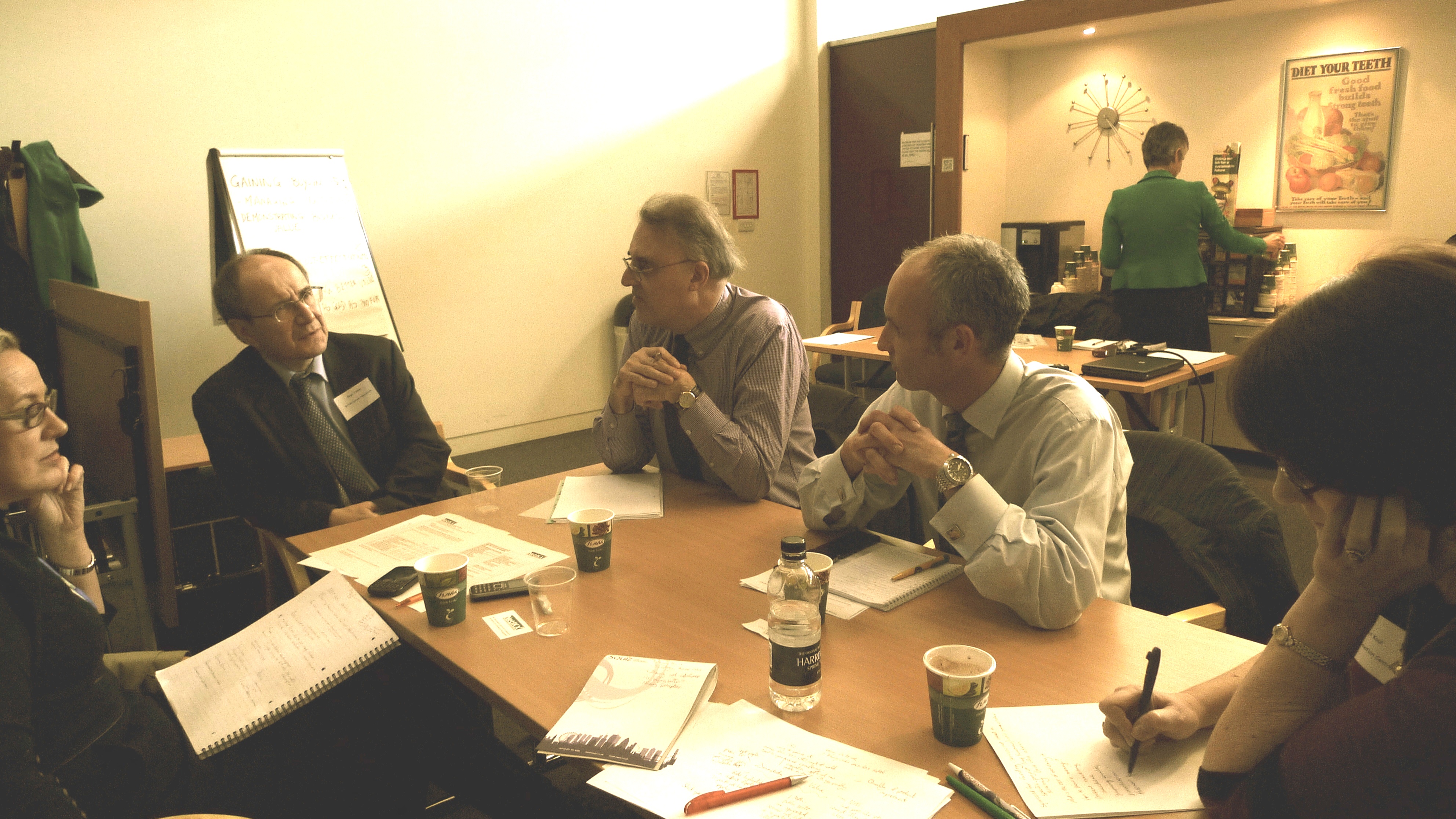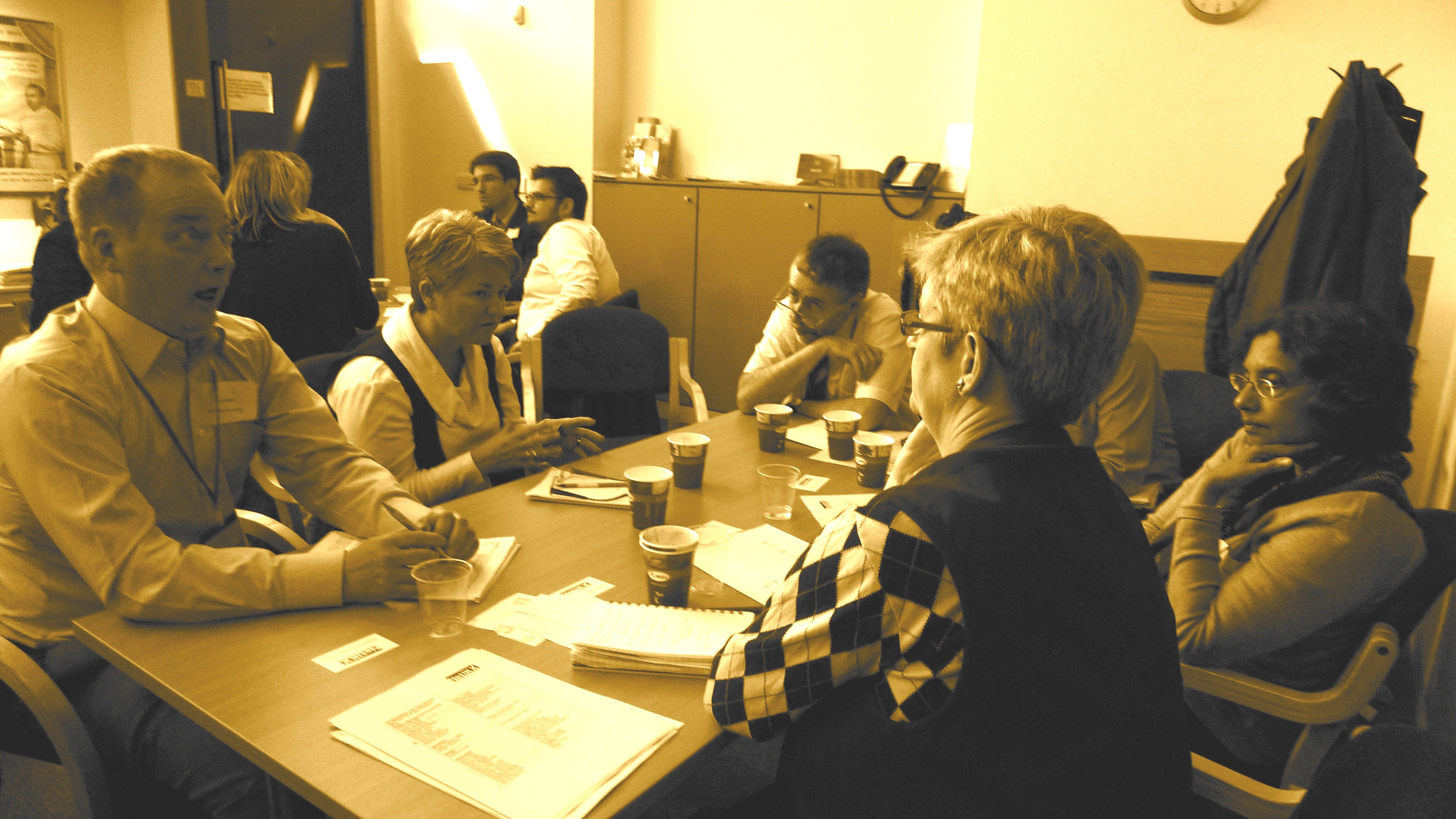Blog by Emily Heath.
One of our five key themes in NetIKX’s 2010-2012 seminar framework has been ensuring business value and cost effectiveness in everything that we do. In fact it is such an important theme, that our 2013-2015 framework will be highlighting it as a key perspective to underline all our seminars.
Our two speakers at NetIKX’s September 2012 seminar operate in two very different sectors. However, both share a commitment to deliver value and ensure cost effectiveness to both internal and external clients, which gave them valuable insights to share with us on this important topic.
Speakers:
Roger Farbey – British Dental Association (BDA)
‘How to justify the implementation and continuation of a new KM service’

Roger Farbey is Head of Library & Knowledge Services at the British Dental Association (BDA) where he has been in post since 1991. In this time he has introduced a new Library Management System and online searching (Medline) to the BDA and an online public access catalogue (OPAC), which he insisted, would be available to all including non-members (“to show them what they were missing”). He was instrumental in introducing KM to the BDA in 2009 when he appointed the Association’s first Knowledge Manager, Nikki West. He is a Fellow of CILIP and was made an MBE for Services to Dentistry and Dental Information in this year’s Queen’s Birthday Honours.
Megan Roberts – Oxford Innovation
‘Cost effectiveness: providing a service and proving value without a budget’

Megan has been working at Oxford Innovation, a small business support company, since 2008. She is currently providing a one-woman information service whilst juggling the vagaries of small company budgeting, allocating costs to specific projects rather than having a central budget. Megan is also vice-chair of UKeiG.
Roger Farbey
The BDA first tried knowledge management techniques in 2005, at the bequest of the then CEO. But KM didn’t really take off until 2006, when a new, very supportive, CEO took up post.
The new CEO asked the Library staff to help coordinate the BDA’s CRM database (known as CARE), moving it forward and adding value. A business case was put forward to create a new Knowledge Manager post, to be tasked with conducting an organisation-wide knowledge audit.
The new Knowledge Manager (Nikki West) began in January 2007. Her information audit revealed that the BDA’s documents were in a painful state of disarray, with some even held off site in a furniture warehouse (no doubt a common problem across many institutions!). Items had been haphazardly stored on different shelves with no real system. Physical storage in central London costs lots of money, so it was imperative to eliminate any “rubbish”. Nikki has been at the forefront of doing this, managing to free up lots of storage space by destroying unneeded records – a tangible benefit.
One department in particular was taking up a lot of space with stored archives of paperwork dating back over the past twenty years. At first they steadfastly resisted Nikki throwing any items out, but in the last couple of years they have completely changed their attitude and become very compliant in putting a destruction date on the new recording forms provided. Roger believes they have come to grasp the benefit of having someone else look after their records! The BDA’s CEO has also been very helpful in overcoming any resistance.
Encouraging sharing informally
To encourage good collaboration and interaction between BDA teams, the Knowledge Services team initially tried holding ‘knowledge cafes’, but found these were a bit too formal and stilted. Instead they now hold informal charity coffee mornings by the library, which help encourage staff to talk together, transferring knowledge and encouraging sharing informally. Apart from a small kitchen, the BDA has no staff room or other shared space where staff can come together. There are pub meetings after work, but not everyone wants to go to the pub. So the coffee mornings provide an opportunity for staff to get together during work time and share information – Roger commented that this sounds “incredibly facile” but actually yields very helpful results for finding out what people are working on.
In April 2012 the previous CARE Owners’ Group (COG) name was changed to Knowledge Owners’ Group (KOG), to reflect the wider area of activity and interfaces that the group now considers. The KOG will assist in the facilitation and development of rules and good practice for the organisation and storage of recorded content across the BDA’s information systems. Documents have been devised to illustrate and promote this, including an attractive Mind Map of the BDA’s Functional Classification scheme.
Gaining acceptance for KM (the sneaky way)
Roger believes that the most valuable tool in gaining acceptance for KM within an organisation is to make sure it brings value and practical assistance. Implementing good records management has proved to be a valuable tool in gaining wider acceptance and credibility for KM across BDA teams. If previously resistant departments can be persuaded to buy into records management they inevitably also buy into the other KM activities – in Roger’s view it is impossible to overestimate the importance of these “trojan horse” methods.

Dentist’s chair in the BDA museum
Megan Roberts
Megan’s employers, Oxford Innovation, are government funded to go in and help companies understand how to improve their profitability and stay in business. A lot of companies don’t realise how important information is to their success. Even Oxford Innovation don’t even appreciate this – Megan has been trying to persuade senior management that emailing documents to collaborate is not that efficient and a communal network space where staff can share documents together would be much more efficient.
Data validation is really important – Megan doesn’t just rely on Wikipedia! She likes to check that a couple of sources agree; often you get a lot of articles all just copying word-for-word a single source – the challenge is to find original sources. As she is often researching topics which are completely new to her, she finds Wikipedia can be a good grounding to get a feel for a subject, before following through the links to other sources at the bottom of Wikipedia articles. As you learn the language of the topic area you can start to refine your search.
She is also a great believer in paying for information if necessary, to ensure good quality info – but this has to be justified to clients. Going behind the paywall can expose information Google can’t. Trade associations are often really valuable sources of data, and Megan will suggest that her clients join these associations to gain access to member-only databases.
How to provide an excellent service without a budget – “You’ve got to dig a bit deeper and go a bit further than Google”
A “snazzy report”, even just formatted nicely using Word so that it looks good, often impresses. People like something tangible to hold on to; something done formally looks much more valuable. References at the end of reports also create a good impression of authority.
Think outside the box – tell clients more points of view than they’re expecting! Look for what you think people might want, rather than what they ask for. Delve deeper into the problem to look a few stages back than they’ve reached. Sometimes companies come to Oxford Innovation wanting advice on how to sell more of their products, but on investigation Oxford Innovation discover the company does not have the production capacity to produce more products, even if they were able to sell more.
Proving value internally
Megan commented that this is often difficult. If you don’t tell your colleagues what you can do, how are they supposed to know? Informal chats about what colleagues are working on can be a good opportunity to offer them help.
Listen and adapt – pay attention to what people want – and put yourself out there!
@MeganJRoberts
http://meganjroberts.wordpress.com
Both presentations are available to NetIKX members by logging into the NetIKX website.
Below are a couple of photos from the group discussions after our speakers.







